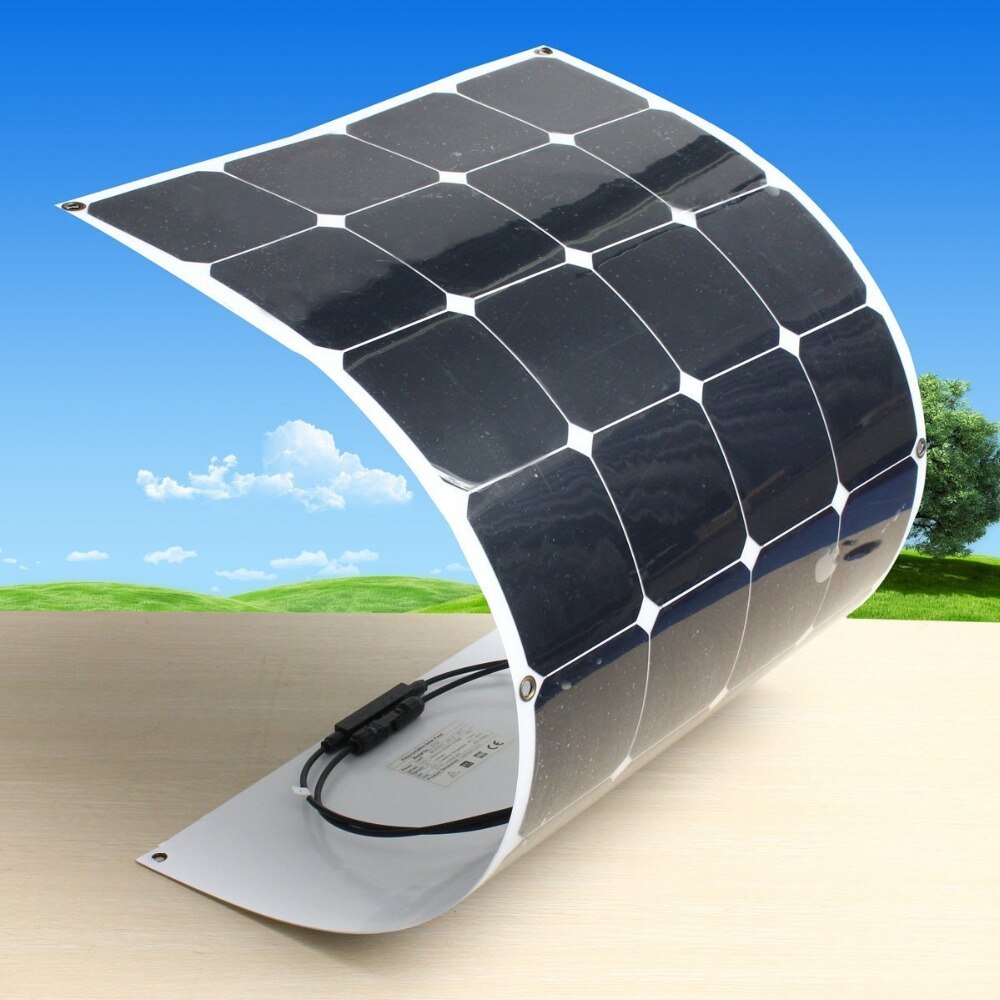Flexible solar panels, also known as thin-film solar panels or flexible photovoltaic (PV) modules, differ from traditional rigid solar panels in their design and materials.
- Lightweight and Thin: Flexible solar panels are significantly lighter and thinner than traditional rigid panels, making them easier to transport, handle, and install. This characteristic also makes them suitable for various applications where weight and space constraints are essential, such as on boats, RVs, or curved surfaces.
- Bendable and Conformable: Unlike rigid panels, flexible solar panels can be bent or curved to some degree. This flexibility allows them to adapt to non-flat surfaces, opening up new installation possibilities and creative designs.
- Durable and Impact-Resistant: Flexible solar panels are typically made with durable materials that can withstand some level of impact and environmental stress. While they may not be as robust as glass-covered crystalline silicon panels, they offer reasonable durability for specific applications.
- Unaffected by Shade: Flexible solar panels are less affected by partial shading than traditional crystalline silicon panels. The thin-film technology used in these panels allows them to continue producing electricity, even if some areas of the panel are shaded.
- Aesthetically Versatile: The flexibility and thinness of these panels make them more aesthetically versatile. They can be integrated into various surfaces, including backpacks, clothing, building materials, and curved structures, without altering their appearance significantly.
- Lower Manufacturing Cost: The manufacturing process for flexible solar panels generally requires fewer raw materials and energy compared to traditional solar panels, leading to potentially lower production costs.
- CIGS or Amorphous Silicon Technology: Flexible solar panels are commonly made using thin-film technologies such as Copper Indium Gallium Selenide (CIGS) or amorphous silicon. These technologies have different efficiencies and performance characteristics compared to traditional crystalline silicon panels but offer unique advantages in terms of flexibility and versatility.
- Portable and Off-Grid Applications: The lightweight and flexible nature of these panels make them ideal for portable and off-grid applications. They are popular for charging small electronic devices, providing power for camping trips, or as part of portable solar kits.
- High-Temperature Performance: Flexible solar panels often have better high-temperature performance than traditional crystalline silicon panels. This means they can maintain higher efficiency levels in hot environments.
- Easy Installation: The flexibility of these panels simplifies the installation process, as they can be mounted on various surfaces with adhesive backing or grommets for easy attachment.
It’s important to note that flexible solar panels generally have lower efficiency levels compared to traditional crystalline silicon panels. As a result, they may require more surface area to generate the same amount of electricity. The choice between flexible and rigid panels depends on the specific application, available space, and desired efficiency.


